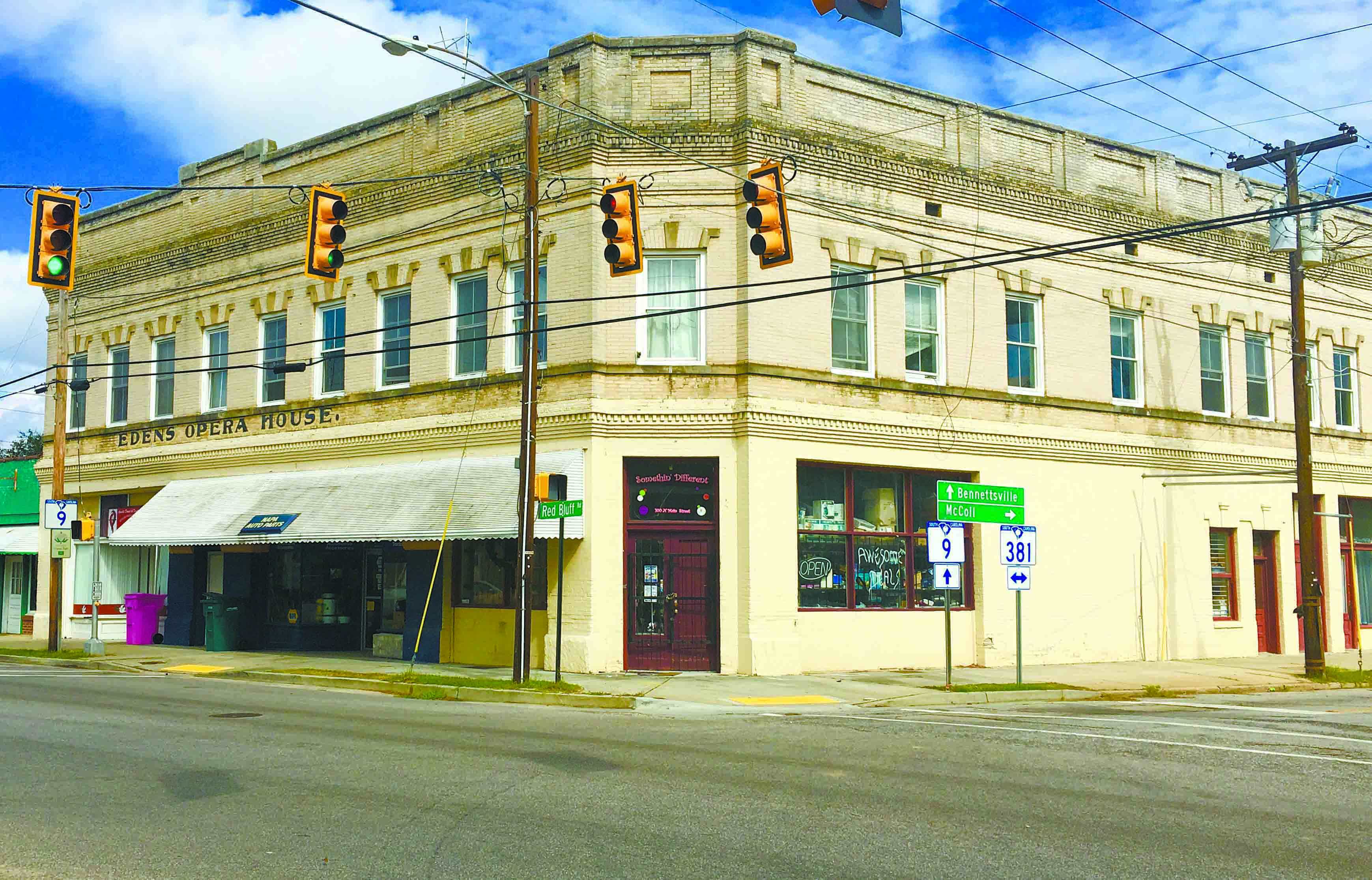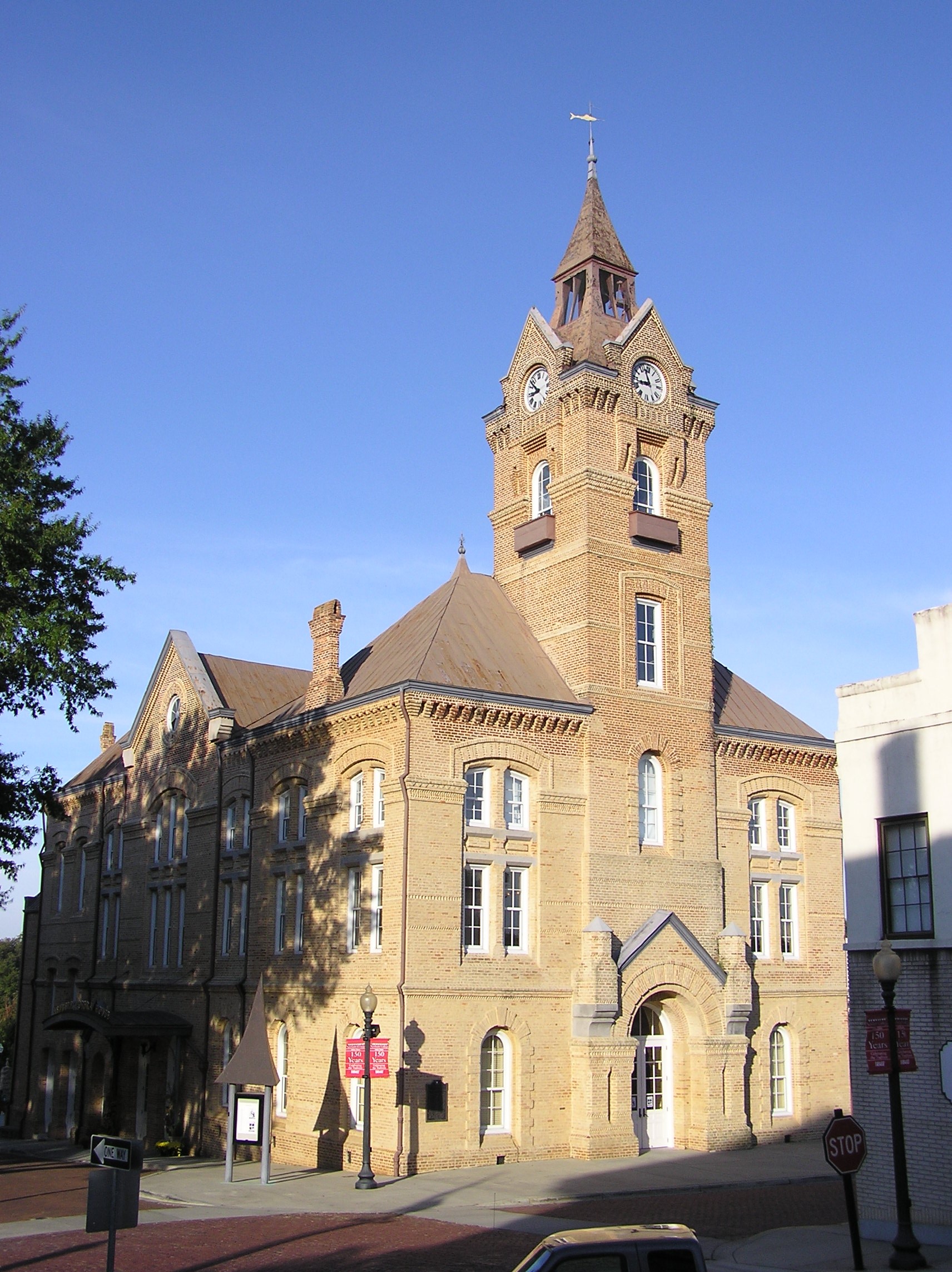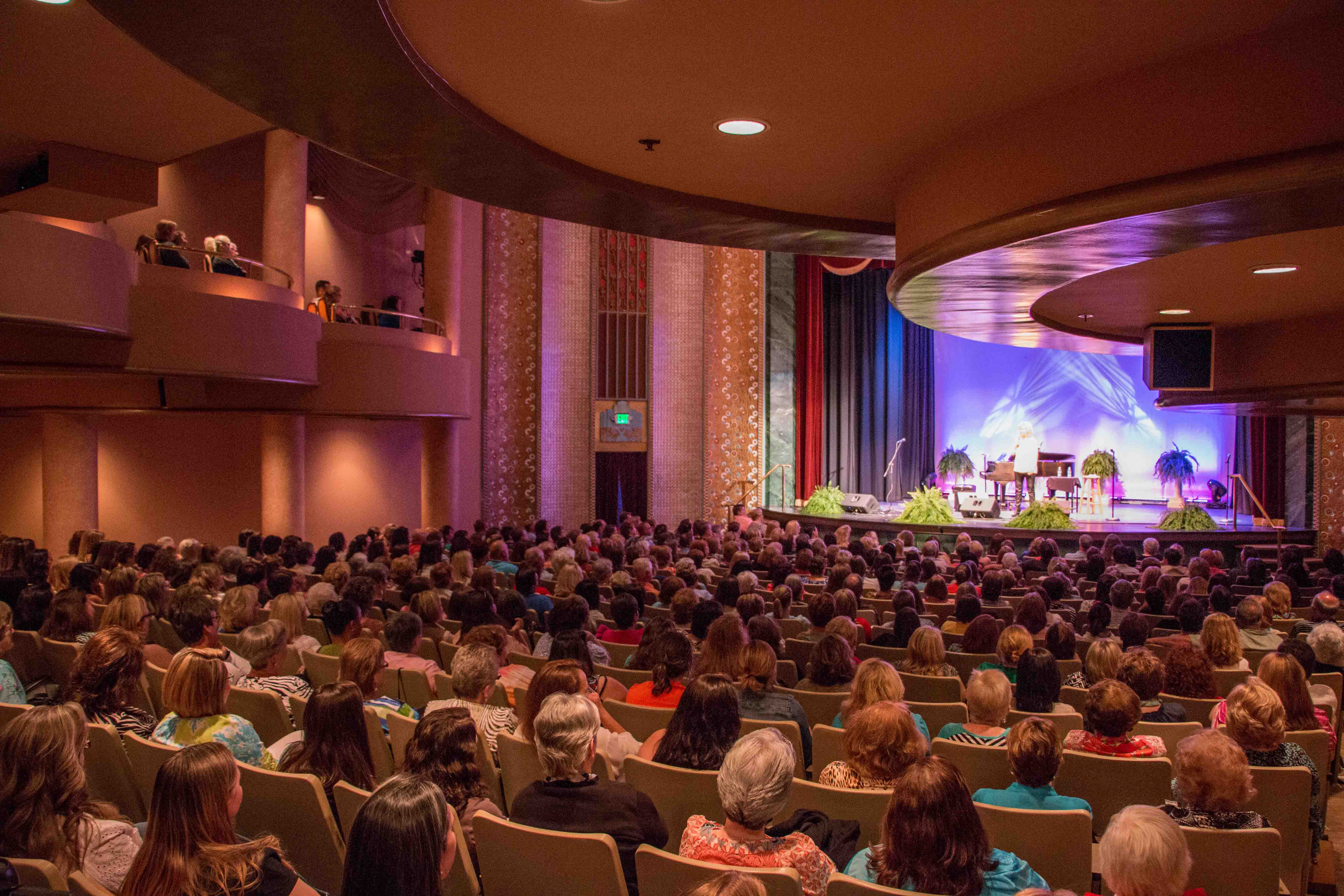Theater companies traveling between New York City and Miami used to stop at the Town of Clio's opera house to give performances, attracting crowds from neighboring South Carolina towns. But today, many decades later, the Edens Opera House now draws in the town's residents, serving as an unofficial community center.

The Edens Opera House in Clio houses youth development groups,
a church and an auto parts store. Photo: Town of Clio.
When Jefferson D. Edens Sr. built the opera house around 1910, it contained stores, offices and an auditorium, according to its 1979 National Register of Historic Places nomination form.
While it's no longer drawing performers from both ends of the east coast, the opera house today has stayed true to its mixed-use identity. It houses an auto parts retailer, a variety market supply store, a low-power community radio station, a Medicaid services provider for children, a church and two youth organizations.
A nonprofit called Clio O.P.E.R.A owns the building, said Clio Mayor Joe Kinney. He is the nonprofit board's immediate past chairman, and said the organization provides community service projects and special programming to enrich the lives of the residents of Clio and surrounding areas. O.P.E.R.A. stands for Organizing, People, Empowering Resourceful Achievers.
"The history behind the ownership is significant," said Kinney, explaining that a former resident of the town, Sally Calhoun, donated the building to the organization in 2013. She took a special interest in a first grade class from Clio Elementary School and provided educational and program support for 12 years. She also sought to pay for their college education after the students completed high school, said Kinney.
Changes over the decades
Opera houses have had a presence in American cities and towns for more than 200 years.
In the 1800s, small towns began building their own opera houses as a way to attract visitors and entertainers. Over the years, cultural changes and the advent of movies led to the decline of many opera houses. A few, such as Clio's Edens Opera House, still grace small towns in South Carolina, where local leaders have embraced their storied buildings and fit them into their downtown visions.
The Newberry Opera House was built in 1881. It hosted touring companies of New York plays, minstrel and variety shows, singers and speakers, magicians, mind readers, and boxing matches.

The Newberry Opera House has driven cultural and economic
development for decades. Photo: City of Newberry.
When it didn't offer shows, the auditorium became a community gathering space for meetings, dances or commencements. When silent movies and then traditional movies became popular, the Opera House became a movie theater in the 1920s. It closed in 1952, and a few years later, there was talk of tearing the building down. The Newberry Historical Society stepped in to preserve the Opera House, and it was placed on the National Register of Historic Places in 1970.
The Opera House was renovated in the 1990s, adding 10,000 square feet to the original building to create a modern theatrical production facility. Today, the opera house seats 426 and boasts state-of-the-art lighting and sound systems.
City Manager Matt DeWitt said the restored opera house has been a catalyst for an economic and artistic revitalization in Newberry. The Opera House attracts private investment through sustained quality entertainment and community engagement. It also has an engaged board of directors who have a passion for the city and talk directly with investors, DeWitt said.
"The organization strives to fulfill the mission of cultural and economic development through the window of the arts," he said. "This is done by attracting quality arts programming that includes all the community and demonstrating its commitment time and time again."
DeWitt said the Opera House brings roughly 100,000 people to downtown Newberry each year for performances, tours, educational seminars and meetings. It also supports tourism in the Midlands.
"By quality entertainment and tours, the Opera House supports the city with extra dollars to not only the city, but also local businesses through increased revenue," DeWitt said.
These efforts pay off. According to the National Trust for Historic Preservation, a 2009 study found that 78 percent of all U.S. leisure travelers participate in cultural or heritage activities.
Economic contributions
With cultural and heritage travelers spending an average of $994 per trip, they contribute more than $192 billion annually to the national economy. (The study was conducted by Mandala Research for the U.S. Cultural and Heritage Tourism Marketing Council, in conjunction with the U.S. Department of Commerce. Heritage Travel, Inc., a subsidiary of The National Trust for Historic Preservation, was the lead sponsor of the study.)
The Sumter Opera House is another site with a colorful history. Built in 1895, the building has served not only as an opera house, but also as a music academy, movie theater, city offices, barber shop, jail, and even a meat market. In 1982, the Opera House closed its doors after 46 years as a movie theater.

The Sumter Opera House attracts tourists and enriches residents' lives. Photo: City of Sumter.
The City of Sumter purchased the building in 1984 with an eye toward gaining office space and attracting visitors downtown. Careful renovations to restore the Opera House to its former beauty, including restoration of the art deco gold leaf by French restoration artists, were completed in 1987. These renovations were the first steps in an ongoing movement toward downtown revitalization and historic preservation in the City of Sumter.
Today, the Opera House still houses Sumter City Hall and City Council's chambers. The 550-seat theater hosts a variety of local, regional and national talent, free performances by local groups, and many graduation ceremonies.
The Sumter Opera House attracts private investment through collaboration with educational systems, civic organizations, corporate sponsors and individual renters, said Seth Reimer, cultural manager for the City of Sumter.
"We are creating a vibrant community that assists investors with getting their message out in an engaging way," Reimer said. "The Sumter Opera House, now presenting local, regional and national acts builds a powerful presence and allows investors another 'stage' in which to reach customers and entertain prospective and current clients. There is evidence that it helps increase name recognition and offer networking opportunities to develop new business."
By presenting 14 acts in the 2016 - 2017 season, the Sumter Opera House had an economic impact of as much as $750,000, considering its 70 total events and more than 21,000 attendees, Reimer said. Patrons at the Opera House spend money on meals, refreshments, souvenirs, gifts, transportation, lodging and other miscellaneous items.
The City of Sumter strives to be a destination worthy of travel and visitation, and the Opera House supports that goal, Reimer said.
"The Sumter Opera House is spearheading that vision by stimulating economic development and tourism growth while enriching the cultural lives of Sumter residents," he said. "The Sumter Opera House is creating an environment that blends backgrounds, ethnicities and cultures."
